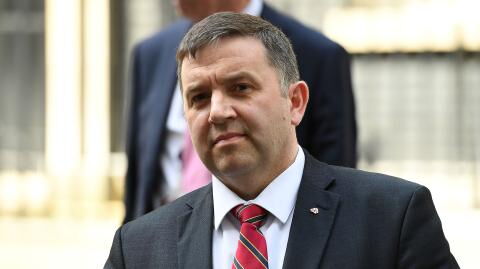Ever since the coronavirus started wreaking havoc around the world, the race to find a vaccine has been on and thousands of volunteers have since been recruited to take part in clinical trials to test the efficiency of the vaccine.
Discover our latest podcast
In November, multiple laboratories that had been working to develop a vaccine to fight COVID-19 announced the first bit of good news. The Pfizer clinic was the first company to develop a vaccine that was 90% effective, then a French company named Sanofi published their good news and most recently, the American company Moderna did the same, claiming their vaccine to be 94.5% effective.
A Miami-based correspondent from AFP Leila Macor decided to volunteer to be one of the trial’s guinea pigs and has recently revealed why she agreed to take part in Moderna’s clinical trials.
Her account
Three weeks before Pfizer and Moderna launched their coronavirus vaccine clinical trials in late July, my father passed away - alone, as so many have in this crisis.
As our family lived through the trauma, and said goodbye as best we could, I was confronting another stark and dangerous reality - Miami was becoming a major US virus hotspot, and my job was to cover the story.
I talked it over with friends and family, who helped me decide that any possible side effects from the trial would not be worse than getting COVID-19. So I took the plunge.
Who was accepted to take part?
Journalist Leila Macor explains that:
Anyone was eligible, as long as they were in high-risk jobs: doctors, taxi drivers, grocery store workers… and reporters.
The experimental vaccine is given in two doses and volunteers are paid $2,400 over the two-year course of the study.
She continues her story:
They warned of possible side effects–from pain at the injection site to fever and chills. The 30,000 subjects are divided in two groups: those who get the vaccine and those who get a placebo.
After several blood tests, the journalist was also given a pregnancy test, with doctors stressing the importance of using contraception:
The potential side effects for a foetus were unknown. The lab had me download an app to track my temperature and any eventual symptoms.
A month later, the journalist received the second dose:
It hurt a lot more, and for a while. A hard, red knot emerged at the injection site.
Leila Macor views her participation in these trials as a way to mourn:
I eventually realised that taking part in the trial was a way to process my grief - over losing my father and seeing the world turned upside down. It was a small gesture, but it was the only way I knew how to make myself believe we are fighting back.
Check out the video above for her story.















